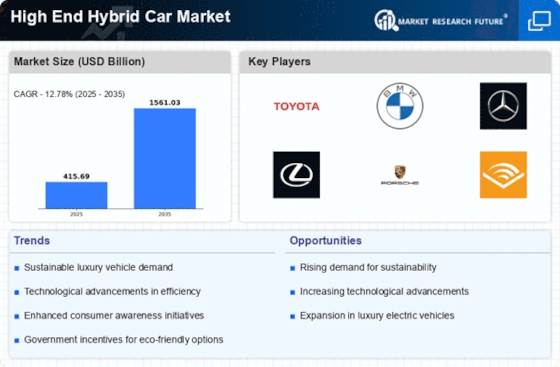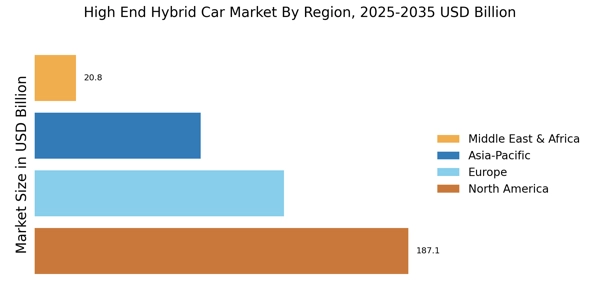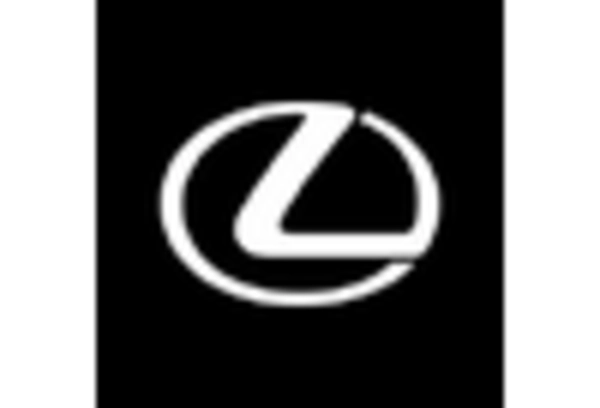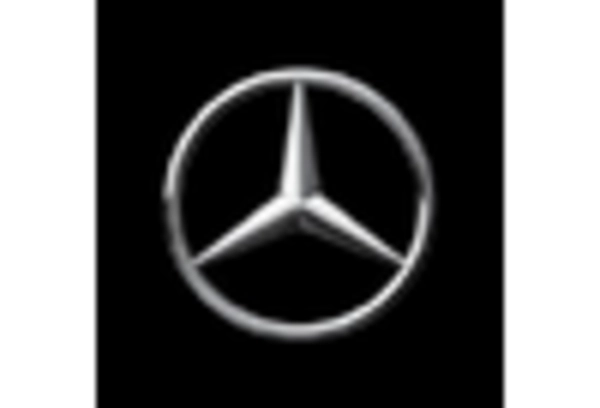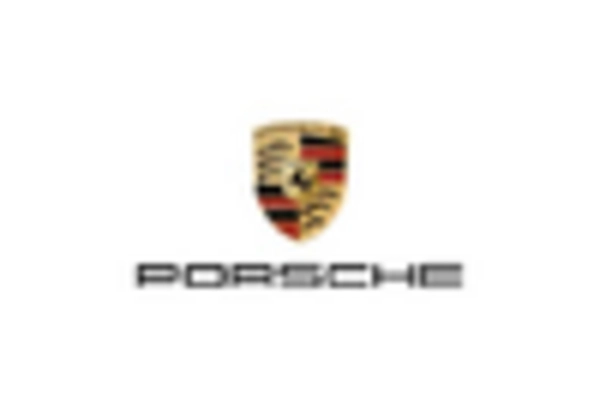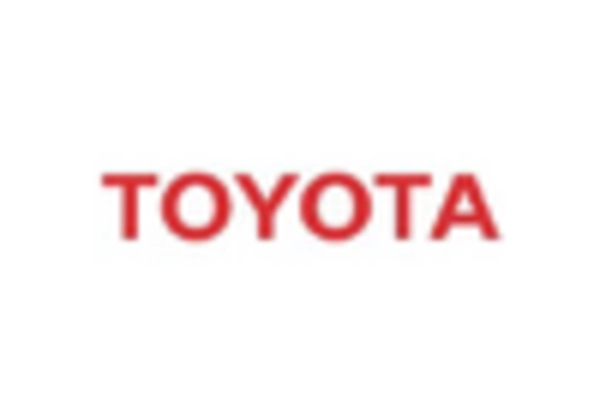Advancements in Hybrid Technology
Technological advancements play a crucial role in shaping the High End Hybrid Car Market. Innovations in battery technology, electric motors, and energy management systems are enhancing the performance and efficiency of hybrid vehicles. For instance, the introduction of solid-state batteries is expected to significantly improve energy density and reduce charging times, making hybrids more appealing to luxury consumers. In 2025, the market is projected to witness a 15% increase in hybrid vehicle sales, largely attributed to these technological improvements. Furthermore, the integration of smart technologies, such as advanced driver-assistance systems and connectivity features, is elevating the driving experience, thereby attracting a broader audience to high-end hybrids.
Government Incentives and Regulations
The regulatory landscape is a pivotal driver for the High End Hybrid Car Market. Governments worldwide are implementing stringent emissions regulations and offering incentives for hybrid vehicle purchases. In 2025, it is anticipated that several countries will continue to provide tax rebates and subsidies for consumers opting for hybrid cars, which could lead to a 20% increase in sales within the luxury segment. These regulations not only encourage consumers to consider hybrid options but also compel manufacturers to innovate and comply with environmental standards. As a result, the market is likely to see a surge in high-end hybrid models that meet or exceed these regulatory requirements, further solidifying their position in the luxury automotive sector.
Rising Fuel Prices and Economic Factors
Economic factors, particularly rising fuel prices, are significantly influencing the High End Hybrid Car Market. As fuel costs continue to fluctuate, consumers are increasingly seeking vehicles that offer better fuel efficiency and lower operating costs. In 2025, it is projected that high-end hybrid cars will become more attractive to affluent buyers who are looking to mitigate fuel expenses while enjoying luxury features. This shift in consumer behavior is likely to drive a 10% increase in hybrid vehicle sales, as buyers recognize the long-term savings associated with hybrid technology. Additionally, the economic landscape, characterized by a growing emphasis on sustainability, is prompting luxury brands to invest in hybrid models that align with consumer expectations.
Consumer Demand for Luxury and Sustainability
The High End Hybrid Car Market is experiencing a notable shift in consumer preferences, with an increasing number of buyers prioritizing sustainability alongside luxury. This trend is driven by a growing awareness of environmental issues and a desire for vehicles that reflect personal values. In 2025, it is estimated that approximately 30% of luxury car buyers are inclined to choose hybrid options, indicating a significant market potential. As consumers seek vehicles that offer both performance and eco-friendliness, manufacturers are responding by enhancing the sustainability features of their high-end hybrids. This includes the use of recycled materials and advanced fuel efficiency technologies, which not only appeal to environmentally conscious consumers but also align with the luxury market's emphasis on quality and innovation.
Changing Demographics and Lifestyle Preferences
Demographic shifts and evolving lifestyle preferences are reshaping the High End Hybrid Car Market. Younger consumers, particularly millennials and Gen Z, are increasingly entering the luxury car market with a strong inclination towards environmentally friendly options. This demographic is more likely to prioritize sustainability and technological integration in their purchasing decisions. By 2025, it is expected that these younger buyers will account for a significant portion of hybrid vehicle sales, potentially reaching 25% of the luxury market. As lifestyle preferences evolve, manufacturers are adapting their marketing strategies to appeal to this audience, emphasizing the blend of luxury, performance, and eco-consciousness that high-end hybrids offer. This trend is likely to drive innovation and diversification within the hybrid segment.


